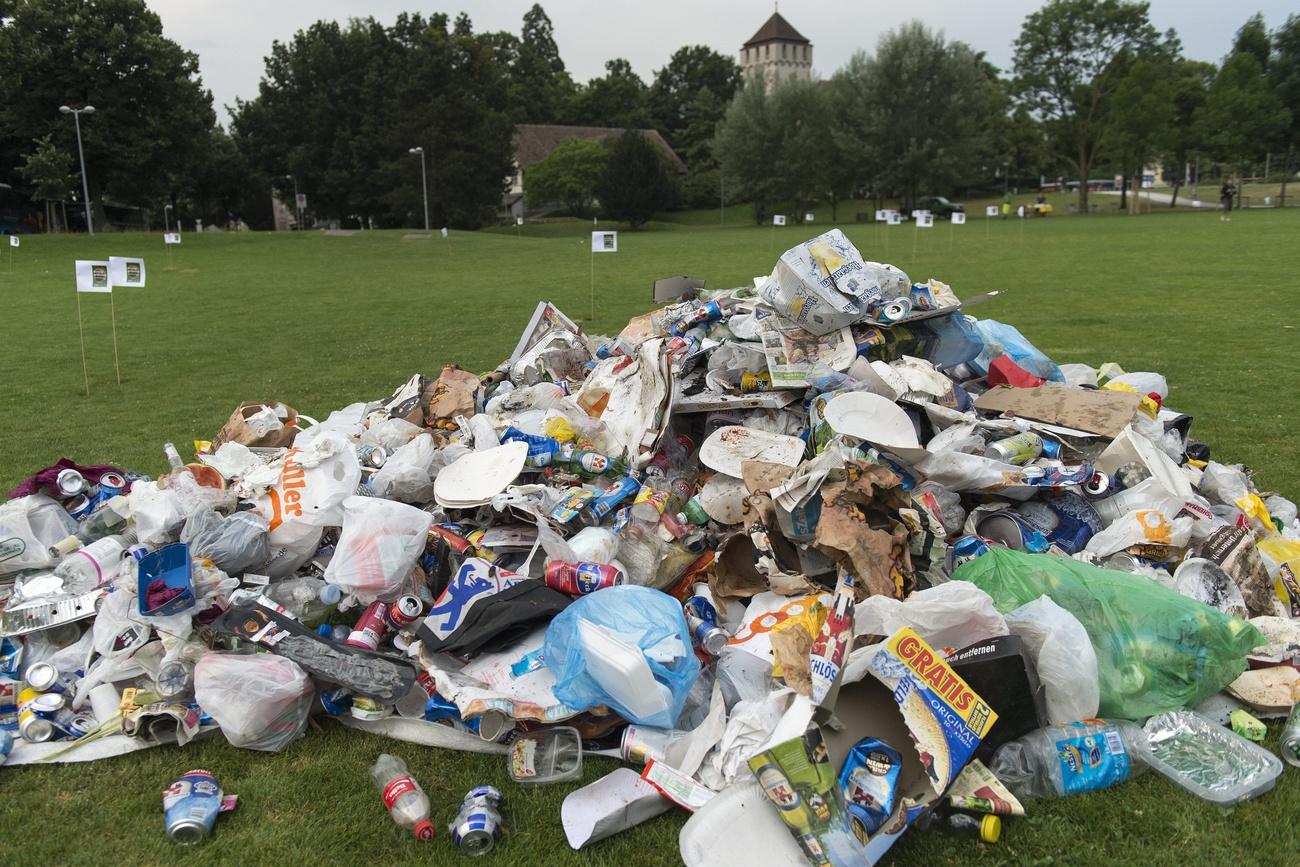Why is plastic so hard to recycle?
Plastic is all around us: it’s so present in our everyday lives we don’t just find it in our cupboards and on our desks, we even find it inside human bodies. A study published by the University of Newcastle found plastic traces all the way inside our muscles.
For a material that’s so intrinsic to the way we live, recycling plastics is surprisingly difficult, and still seems to be a riddle in Switzerland. As waste management is in each canton or commune’s hands, and since there aren’t many suitable sorting facilities in the country, many plastics rarely have a chance to be recycled. Instead, today most of it is burnt along with regular waste, generating energy to supply Swiss households with electricity and heating.
Changing our habits to consume less of this material might help to solve the riddle, but in order to make plastics more recyclable from the outset, a fundamental shift in production is needed, something that’s outlined in what experts call the ‘vital recycling chain’.












You can find an overview of ongoing debates with our journalists here . Please join us!
If you want to start a conversation about a topic raised in this article or want to report factual errors, email us at english@swissinfo.ch.